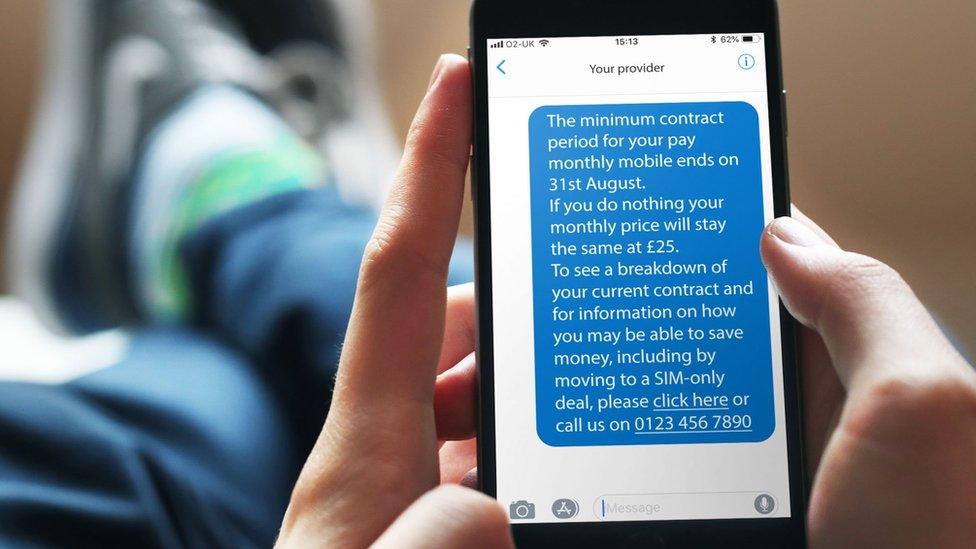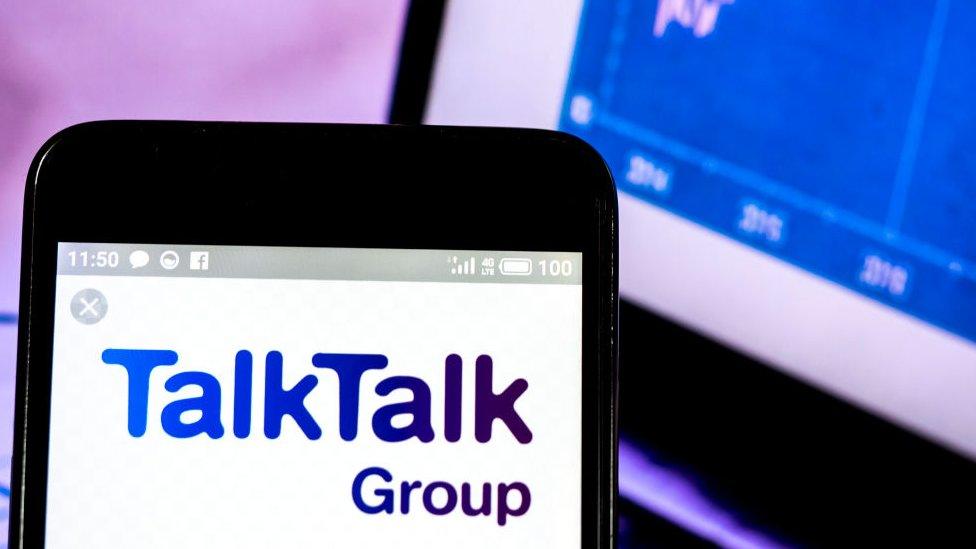Phone and internet users to get end-of-contract alerts
- Published
- comments

Mobile phone subscribers will get a reminder ahead of their contract lock-ins coming to an end
Broadband, pay-TV, mobile phone and landline customers must be told when their contracts are about to end and be informed of their providers' best alternative deals, under new rules.
The UK's communications watchdog Ofcom aims to help users avoid overpaying., external
It said more than 20 million people have stuck with subscriptions beyond their lock-in, often without realising.
And those that opt not to move to another package need to be reminded they can still do so on a yearly basis.
The watchdog first announced its plan to help people secure end-of-contract deals in July 2018, external.
Relevant companies have nine months to update their systems and must start sending out the notifications from 15 February 2020.
Service providers will need to text, email or send a letter to their consumers between 10 to 40 days before their contracts come to an end saying:
the date their contract can be terminated without a penalty
the price they have been paying
any changes to the price or service that automatically come into effect after the date
how much notice they need to give to cancel the deal
the best alternative subscriptions on offer, including the prices charged to new customers

Users will be able to choose how they should be contacted
"This will put power in the hands of millions of people who're paying more than necessary when they're no longer tied to a contract," said Lindsey Fussell, Ofcom's consumer group director.
About 14% of customers do not know whether or not they are still tied to their current contracts, according to research commissioned by the regulator.
It added that customers can typically cut the cost of a bundle of the services involved by about 20% if they sign up to a new deal rather than remain on a contract beyond its minimum period,
However, some consumer rights organisations still have concerns the measures do not go far enough.
During the consultation, Citizens Advice had told Ofcom, external that it believed providers should be made to send out more than one notification to each customer and that the companies should also be made to disclose how many of their subscribers are out-of-contract and how much extra on average they are paying compared to in-contract users.
"Almost nine in 10 people think that charging loyal customers more is unfair, and we agree," commented Gillian Guy, Citizens Advice's chief executive.
"We look forward to hearing about the concrete actions Ofcom will take to end this systematic scam."
A trade group has also raised concern that small internet providers that specialise in serving business customers might struggle with the cost and complexity of adapting their systems to meet the rules, external.
"[The Internet Services Providers' Association] is concerned at the lack of clarity around small business customers... as it does not seem to take into account the scale and nature of this market," said a spokesman for the organisation.
"We hope that Ofcom will address this going forward."
- Published30 April 2019

- Published1 April 2019

- Published28 February 2019
